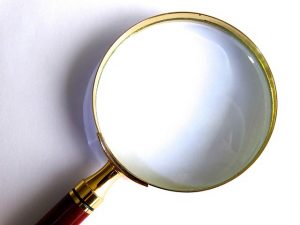Your Personality Type – Do You Know Who You Are?
 Who are you? What motivates you? What stops you in your tracks? What’s your biggest fear? Your most pressing need? Your most debilitating pain or emotional wound? What lights you up, turns you on, gives you joy? Do you know your own psychology and personality type?
Who are you? What motivates you? What stops you in your tracks? What’s your biggest fear? Your most pressing need? Your most debilitating pain or emotional wound? What lights you up, turns you on, gives you joy? Do you know your own psychology and personality type?
The answers to these questions are the ones which form the basis of your beliefs, values, moral code and your personality. In memoir, it’s your personality that carries your story. Your life happens the way it does because of the decisions and choices you make, the way you see and interpret the world around you.
 The Value Of Introspection
The Value Of Introspection
I believe that one of the greatest benefits of writing a memoir is the opportunity, even the necessity, of examining your inner self and gaining clarity on why you do the things you do (and why you may not do the things that feel threatening).
Sometimes, in fact most of the time, we have hidden these motivations so well and so deeply that we don’t even know why we behave in certain ways. Why is it that two people raised in the same household — same parents, same environment, same education, maybe even the same experiences — can have entirely different reactions to the same situation? It may be that one tiny remark changed the course of a life forever, unknown to the person speaking, and suppressed by the one hearing it.
 A Thoughtless Remark
A Thoughtless Remark
When I was a teenager, I wanted to be a veterinarian. We’d always had pets when I was growing up and I loved animals. I wanted to dedicate my life to helping them. We lived in a small town and the nearest vet was about twenty minutes drive away, so when I asked my parents if I could see about doing a part-time unpaid job with him, they agreed to drive me there if I could persuade him to hire me. I was so excited. I was willing to do anything — cleaning cages, paperwork, babysitting sick pets, whatever was needed.
We arrived at the office and as my father waited in the car, I walked into the tiny office which smelled of dogs, fear and medications. My palms were sweating and I couldn’t seem to get enough breath. I pasted on a brave smile as I gave my name to the receptionist. She told me the vet was busy, but would be done soon if I didn’t mind waiting. I sat in the waiting room, nervous and fidgeting.
Eventually the vet emerged from his office in the back. I stood up and wiped the moisture off my hand on my slacks before offering it to him to shake. My voice shook as I asked him if I could work for him for free to get some experience, as it was my dream to enter veterinary school and become a vet like him. Ignoring my outstretched hand, he glared at me for a second and turned his back. As he stomped away, he growled, “Girls can’t be vets!”
I was devastated. He was so certain and so dismissive that it never occurred to me to doubt him. He was the authority figure, so his view must be the right one. I never did apply to veterinary college After high school I drifted for a couple of years before eventually ending up in art college.
That was nearly sixty years ago, so to some extent he was correct. At the time, there was a very limited quota of women allowed to take the exams to become veterinarians. Now, of course, around 70% of vets are women. But that one thoughtless and unkind remark changed the course of my entire life.
What Might Have Been?
I often wonder what might have happened if his attitude or my response to it had been different. Had I known that his biased assertion was only an opinion, and had I realized how deeply that emotional wound had cut me, I might have overcome it and attained my dream, once I was older. However, I believed that untruth so completely that any other outcome was impossible.
Since then, I’ve learned a lot more about my own psychology and motivations. As a result, I’ve gained enough confidence to begin evaluating other people’s opinions in order to make my own decisions.
Personality Type and Psychological Profile
 Over the years, people have resorted to a number of different ways to discover or alter who they really are deep down inside: expensive psychotherapy, meditation or spirituality, drugs or extreme sports and exertion. Witch doctors, psychologists and therapists of all kinds have come up with innumerable ways to tap into the unconscious and help us learn our deepest secrets.
Over the years, people have resorted to a number of different ways to discover or alter who they really are deep down inside: expensive psychotherapy, meditation or spirituality, drugs or extreme sports and exertion. Witch doctors, psychologists and therapists of all kinds have come up with innumerable ways to tap into the unconscious and help us learn our deepest secrets.
More recently, doctors and psychotherapists have developed dozens of personality tests in order to determine different aspects of our psyches to help us discover who we are and how we operate: Myers-Briggs, Kolbe, Enneagram and Rorschach to name just a few.
A personality test is a method of assessing human personality constructs. Most personality assessment instruments are in fact introspective self-report questionnaire measures or reports from life records such as rating scales. Wikipedia
Why Study Psychology And Personality Type?
There are plenty of ways for you to understand yourself and your motivations. The more you know what makes you tick, the more honest, vulnerable and relatable will be your memoir. In fiction, when the hero is blind to his own failings or to an emotional wound that the reader can recognize and relate to, that reader will be hooked. He has to find out how the hero will overcome that roadblock and reach his goal. It’s the same in memoir.
If you read my article on Narrative Drive, you’ll recall that every story has to have an overarching question. Often in fiction, that overarching question is something along the lines of: will the hero learn to recognize when his behaviour is hindering him and choose another path.
Using Fiction Techniques in Memoir
How much more powerful then, would your memoir be if you were to employ the same tactic? The overall question or theme could be the resolution of an emotional trauma which has crippled you for most of your life until you learned to look at it from a different perspective and as a result, make different, more informed and effective choices.
 This strategy provides many of the elements of great fiction: a hero (you), a goal (resolving an issue or emotional wound), opposition and conflict (your struggle to resolve the issue), a climax (the moment you change your behaviour and confront your fear, your pain, or the lie you’ve always told yourself) and a conclusion (the rewards you get for having matured, grown, or developed).
This strategy provides many of the elements of great fiction: a hero (you), a goal (resolving an issue or emotional wound), opposition and conflict (your struggle to resolve the issue), a climax (the moment you change your behaviour and confront your fear, your pain, or the lie you’ve always told yourself) and a conclusion (the rewards you get for having matured, grown, or developed).
Navel-gazing is its own reward. Introspection and self-improvement make us better, more compassionate human beings, and can change our lives immeasurably. Every senior I know has said at some point, “I wish I had known then, what I know now.” I bet you have too. I urge you to use that wisdom to drive the theme of your memoir.
What’s Your Personality Type?
Here’s a website that does a variation on the Meyers-Briggs test for personality types. There’s no charge and you don’t have to give your e-mail address.
https://www.16personalities.com/free-personality-test
Give it a try. You just might learn something about yourself. Let me know your type in the comments below. I’d love to compare notes. (I’m INFJ)
Happy Writing!

